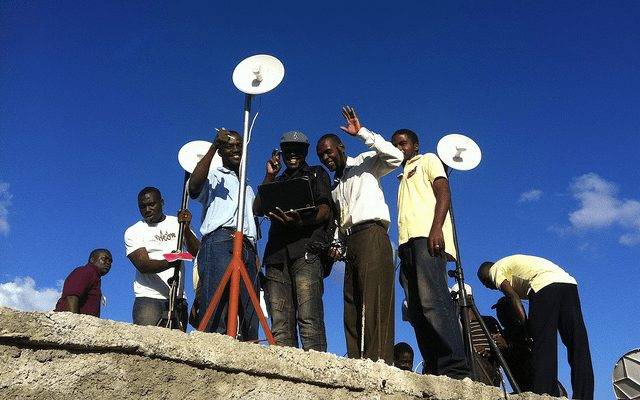GSMA Announces USD 391 K Innovation Fund For Rural Connectivity For Ugandan And Ghanaian Startups

African startups in both Uganda and Ghana whose products are built around fostering connectivity in rural communities have cause to be optimistic as the GSMA has announced the launching of a fresh Innovation Fund for Rural Connectivity worth USD 391 K. This is an effort to expand digital inclusion through innovative new technology solutions that can potentially connect underserved rural communities.
Through the Fund, tech startups that can deploy veritable solutions in rural Uganda and Ghana will be provided with grants, as well as the opportunity to collaborate with MTN Uganda and Vodafone Ghana, respectively, on their unique solutions.
The projects that are targeted by the Fund will be expected to explore innovative ways through which broadband networks can be proliferated in rural areas. The Fund is also focused on startups that possess commercially sustainable business models which can be scaled and reproduced in identical settings. And renowned telecoms operators are expected to work closely with the benefiting startups on these projects.
“Mobile operators are committed to advancing connectivity in rural areas as they work to deliver commercially sustainable solutions to accelerate progress against the UN’s Sustainable Development Goals (SDGs),” said John Giusti, Chief Regulatory Officer, GSMA. “The Innovation Fund for Rural Connectivity will drive partnerships aimed at developing new ways of using mobile technologies to close coverage gaps in rural areas so that more citizens have access to life-enhancing mobile services.”
Such aspects as active base station technology, passive infrastructure, energy, backhaul, operation, and maintenance, as well as working business models, are believed to be the areas of interest of the new GSMA fund.
The role of mobile internet connectivity in today’s world can hardly be emphasized enough. It does bring a flurry of social and economic benefits as it promotes digital inclusion and facilitates the delivery of essential services. It also plays a vital role in the achievement of vital developmental objectives such as financial services, education, healthcare, gender equality, and poverty alleviation. More so, the importance of rural connectivity is echoed by the UN’s Sustainable Development Goals (SDGs), which also outlines universal and affordable internet access as a specific target.
But this mission may well prove anything but a walk in the park. “Deploying infrastructure in remote areas can be twice as expensive as in urban areas, with smaller revenue opportunities. The challenge is not only to bring mobile internet coverage to rural areas but to do so in a way that ensures long-term commercial sustainability. Innovation and partnership will be essential to addressing this challenge, and the Innovation Fund can play a key role in identifying new ways of using mobile technology to connect the unconnected,” remarked Giusti.
According to the GSMA’s Connectivity Index, over two-thirds of the global population now have access to internet connection. The GSMA’s recent Mobile Industry Impact Report attributes the progress made in countries that have made significant headway in fulfilling their SDG commitments to high levels of mobile connectivity. The study might be suggestive that the reach of mobile is witnessing steady growth, with an additional 400 million people benefiting from mobile connectivity since 2015. However, in spite of the progress made, there is still a lot left to be desired, especially in rural areas. And this move might go some way towards rewriting the narrative.
Image via ICTworks